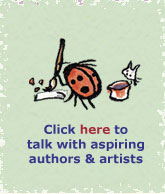![]()
My frie
Chatterbox: Inkwell
My frie
My friend emailed me a link to this interview with Adam
Gidwitz on NPR. At one point during the interview they were accepting calls
from listeners. Most of the people who called in had nothing but praise for his
works. But then this one guy calls in, and he says, “I like to call in and
compliment authors when I feel sympathetic to their message. But with this, I
had the same reaction as I did to hearing the original Grimm stories and to
Quentin Tarantino movies: which is that this is child abuse, to teach them such
frightful, mean, cruel things. They learn that this is part of our drama, that
this is how life is; they grow up with an injured amygdala. We model stuff that
ends up being replicated in our society, which is becoming increasingly violent.”
What this man didn’t seem to like about Adam Gidwitz’s books is the violence.
What he doesn’t seem to know about
these books is that every time violence is imminent, Adam Gidwitz warns the
reader. Adam Gidwitz replied to this and basically what he said is that he
couldn’t agree with this man, because, as he said in the interview, “Fairy
tales are not dangerous. Fairy tales
begin with ‘Once upon a time’, and children know that. If the caller were to tell
the story to a 10- or a 12-year old, beginning with ‘once upon a time’ and
ending with ‘happily ever after’ then I think he’d be surprised at the reaction
he got.” I agree with Adam Gidwitz. His
books are not, as the caller seemed to think, painting an unrealistically dark
portrait of the present. Have you seen
the news lately? Fairy tales as a whole and Adam Gidwitz’s renditions of them
in particular, are a great representation of what lots of kids’ lives are like
now. Lots of kids feel ignored by their friends, or ignored by their parents,
or ignored by the world in general. Adam Gidwitz’s protagonists deal with this,
although it’s rather exaggerated. And that’s the point of it, is that kids find sanctuary in ridiculously
exaggerated tales that on some level are describing their situation. Adam
Gidwitz says something about how right after A Tale Dark & Grimm came out, this third grade girl walked up
to him (he was still a teacher at the time) anyway, she walked up to him and
she said “Did you write that Grimm book?” and he said, “Yes. Yes, I did.” And she
hugged him. She clearly loved the book, and I’m pretty sure most of his readers are
somewhere in elementary or middle school. And so his books are not child abuse, they are not giving children a tragic view of
life. On the contrary, they give children hope that no matter how dark the
present is looking, there will always be a happy ending.
This is an essay I wrote. For homework. It was only supposed to be 150 words, and it's almost 500.
(November 4, 2013 - 8:06 pm)




Oh, boy do I need to get A Tale Dark & Grimm sometime soon! At a sleepover with my friend, she let my read her copy and now I AM HOOKED!!! And I agree with you, Maggie, about agreeing with Adam Gidwitz that the fact that he tells you that things are about to look bad isen't something to get angry at. And if you look at the cover of A Tale Dark & Grimm, I know already that I don't want to be reading that book to a five-year-old.
Cappie says meoh. So, you want mayonnaise on your sandwich, Cappie?
(November 17, 2013 - 4:49 pm)